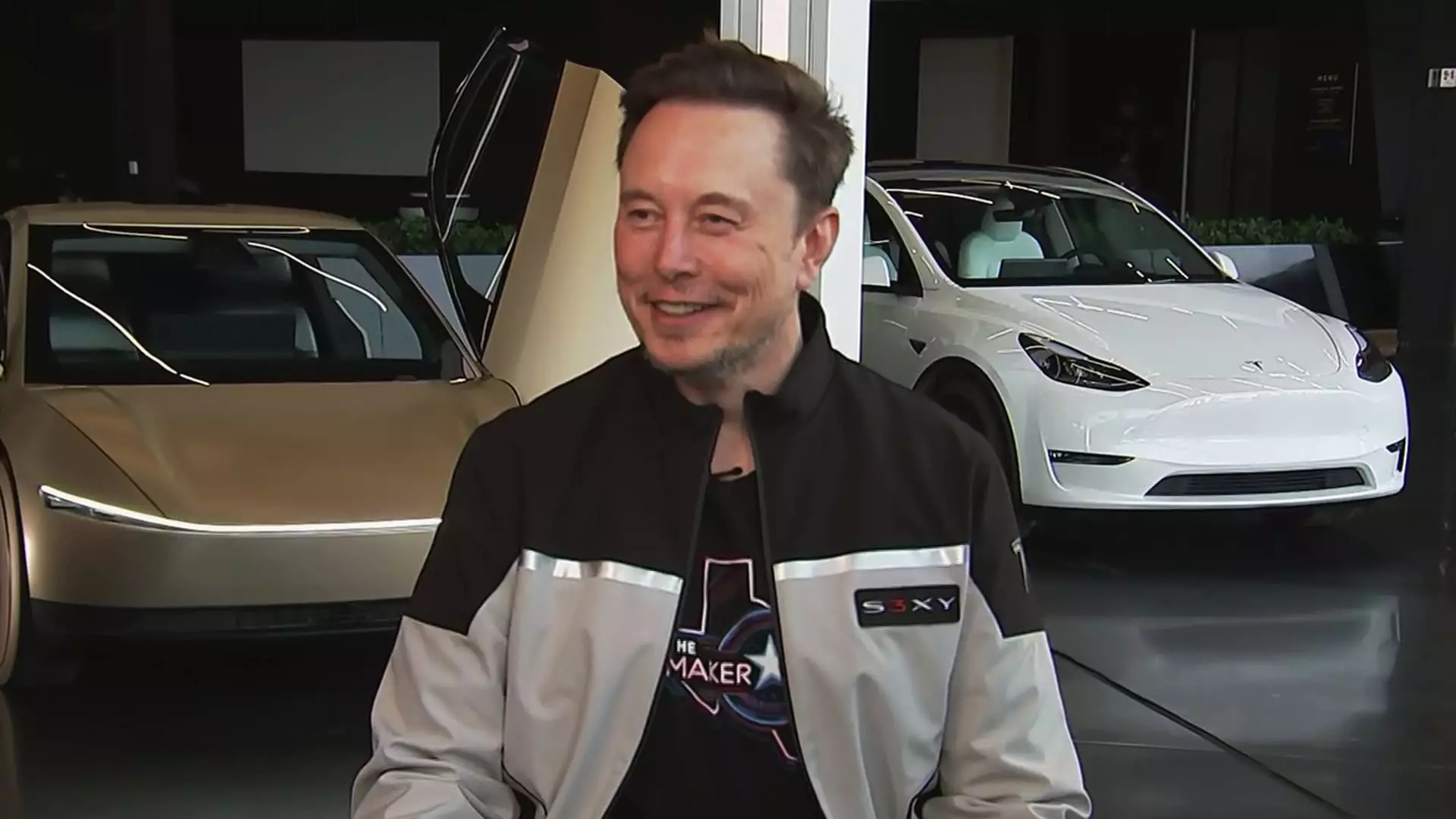Elon Musk, a man often characterized by his breathtaking ambitions, has made it clear that his splintered interests—ranging from electric vehicles to artificial intelligence—are anything but disjointed. In recent statements, he emphasized that Tesla and his AI entity, xAI, will continue to rely on the computational firepower provided by semiconductor giants like Nvidia and AMD. This aligns not just with the operational necessities of both companies but also with Musk’s enduring vision of AI as a pivotal aspect of the future. By installing 200,000 GPUs at his Colossus facility in Memphis and planning a hefty expansion to a million GPUs, he is positioning xAI at the forefront of a technological arms race. Yet, this fervent chase for progress comes with its own ethical quandaries that merit scrutiny.
Musk’s belief that chips will be the limiting factor in AI development reveals not only his understanding of technological bottlenecks but also his adeptness in market positioning. Prioritizing GPU orders for xAI over Tesla’s needs demonstrates a strategic maneuver that raises questions about the balance of corporate priorities. While the vision of operational efficiency is commendable, the implications for environmental sustainability cannot be overlooked. Does delivering advanced AI capabilities necessitate sacrificing our collective well-being?
Environmental Consequences: Innovation at What Cost?
As Musk celebrates the technological prowess of his facilities, local communities in Memphis voice their strong opposition to the negative externalities produced by the high-energy demands of xAI. The reliance on natural gas-burning turbines not only contributes to air pollution but also raises serious health concerns, with studies linking nitrogen oxides to increased risks of respiratory disease. While Musk’s assertions about transforming Memphis into a high-tech hub are infused with promise, the reality for those living nearby is a stark contrast. The power-hungry ambitions of xAI risk overshadowing the community’s immediate health and environmental needs.
Moreover, allegations of violations of the Clean Air Act and local permitting requirements shouldn’t be dismissed lightly. These challenges expose the often overlooked but crucial intersection where technological advancement meets ethical responsibility. The hype surrounding Musk’s ventures can sometimes obscure the uncomfortable truths of their societal implications, creating a dilemma: Can we truly appreciate the heights of innovation when the foundation is layered with environmental degradation?
An Eye on the Future: Revolution or Shortage?
Musk’s forward-looking perspective signals an impending shift in focus from chip availability to a looming shortage of electrical generation—an alarming prediction that bears significant weight. If Musk is correct, the very technology he is striving to perfect could soon be limited by infrastructural inadequacies. His concerns about China’s investments in power generation outpacing those of the U.S. strike a chord, emphasizing a cultural divide that has implications for global leadership in innovation. The claim that Americans possess a unique penchant for questioning authority—fostering breakthrough innovations—should foster further dialogue about how to cultivate this spirit across different cultures.
Yet, one has to wonder: is this assertion truly valid, or is it an oversimplification? In a world increasingly interconnected, the perspectives of innovation cannot solely rest on cultural narratives; they must also account for systemic policies, educational frameworks, and economic accessibility. Achieving breakthrough innovations requires not just individual brilliance but a collective ecosystem that nurtures curiosity and boldness across diverse backgrounds.
The Enigmatic “Muskonomy”: A Potential Merger?
The prospective merger of xAI and Tesla—once a whim expressed by fans—garners a response from Musk that, while noncommittal, reveals layers of complexity regarding his business strategy. The potential combination symbolizes the intricate ties within Musk’s portfolio of companies, yet it also exposes the convoluted allegiance to stakeholders who might not perceive shared missions. Would it benefit the public good if these entities intertwine, or would it merely create a conglomerate too powerful to be held accountable?
Furthermore, Tesla’s significant dealings with xAI, evidenced by multi-million dollar transactions for energy storage systems, illustrate that the boundaries between innovation-focused companies often blur. Musk stands at a critical junction where he can either pave the way for symbiotic growth or nurture a structure that prioritizes profit over societal needs. The techno-optimism surrounding Musk’s endeavors must be balanced with accountability and transparency to ensure that innovation doesn’t come at an unsustainable price.

Leave a Reply